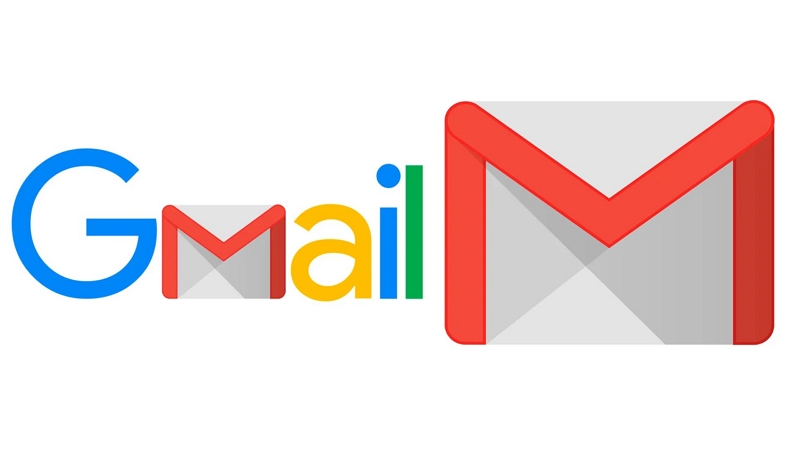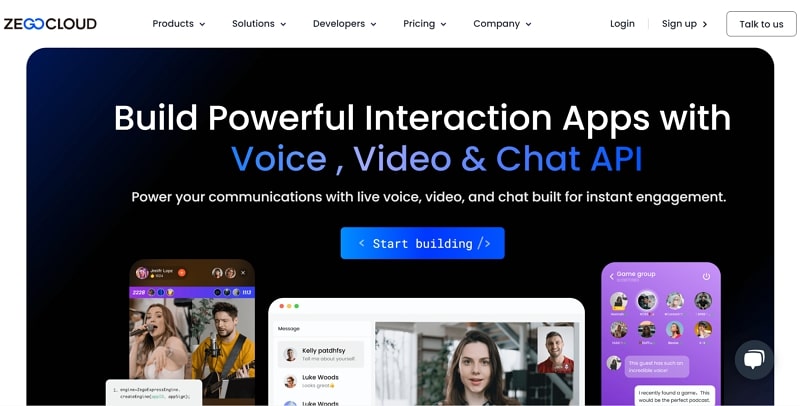When developing a mobile app, you get to choose from multiple application types that fulfill different requirements. You can go for native or web ones when wanting to build an application for a specific platform. However, developers looking to reduce development time and cost should go for hybrid apps, as they blend the best of both basic types. So, explore this guide to learn everything you need to know about hybrid mobile apps.
What is a Hybrid App?
While discussing this type, we can say that hybrid apps combine elements of both native apps and web applications. Such apps are developed to run within native containers using web technologies, such as HTML and JavaScript. In addition, hybrid app development lets you utilize a single codebase for multiple platforms, including iOS and Android.
Moreover, hybrid mobile apps are a good fit for businesses aiming to reach a wide audience on more than one platform. They also simplify updates and deployment to ensure users have the latest features without the need for frequent downloads.
Hybrid App Advantages & Disadvantages
As discussed, hybrid mobile app development offers many benefits to programmers when it comes to cost-cutting. However, they may lack functionality compared to more platform-specific native apps. Here, we will mention all the points you should consider before building this type of application:
Advantages
- Cross-Platform Support: Developers can run these applications on multiple platforms with a single codebase. So, building hybrid mobile apps can ensure your product reaches a broader audience and deploys across various devices much faster.
- Cost-Effective Development: Using a single codebase, hybrid apps minimize the need for separate teams for different platforms. Therefore, startups and small businesses can make use of such applications with limited budgets.
- Access to Device Features: Hybrid apps can access and use native device features like cameras and push notifications through plugins. As a result, this integration enhances user experience and functionality by providing more versatility.
- Faster Time to Market: If you are a hybrid app development company, you should prefer taking such app building projects because they can be developed and deployed more quickly.
Disadvantages
- Performance Limitations: You will face performance issues with hybrid apps compared to native ones, particularly for graphics-intensive applications.
- Limited Native Functionality: While hybrid mobile apps can access certain native device features, they may not fully utilize all the capabilities of the operating system. Therefore, this shortcoming will lead to a less rich user experience compared to native apps.
- Dependency on Third-Party Plugins: Hybrid apps often rely on third-party plugins to access native features, which can cause security risks. Other than that, outdated or poorly maintained plugins can further complicate development and maintenance.
- Longer Debugging Process: Developers may face problems while debugging such apps due to their dual nature. As a result, it may take longer to identify and fix issues while providing hybrid app development services.
Hybrid Apps vs. Native Apps vs. Web App vs. Cross-platform Apps
While discussing the efficacy of hybrid applications, let’s compare these apps with other available options to get a comparative analysis. Here, we will present a detailed comparison between different application types to help you make an informed decision related to hybrid app development.
| Metrics | Hybrid Apps | Native Apps | Web Apps | Cross-Platform Apps |
|---|---|---|---|---|
| Platform Compatibility | iOS and Android with a single codebase | Specific to each platform (iOS, Android) | Any device with a web browser | iOS and Android with a single codebase |
| Performance | When talking about hybrid apps, their performance may not be as efficient as native ones | Such apps offer high performance on each platform | The performance of these apps depends on the browser and the internet | Users will get native app-like performance from these applications |
| Development Language | HTML, CSS, JavaScript with frameworks | Swift (iOS), Kotlin (Android) | HTML, CSS, JavaScript | Depends on the framework |
| Access to Device Features | Limited | Full access to all device features | Limited | Extensive access, nearly like native apps |
| Development Time | Faster than native | Longer | Fastest | Faster than native |
| Offline Capability | Limited | Strongest | Very Limited | Strong |
| Examples | Instagram, Evernote | WhatsApp, Pokémon Go | Netflix, Wikipedia | Airbnb (React Native), Google Ads (Flutter) |
How to Consider When Choosing Between Different Types of Apps
While one application type looks better than another during comparison, the superior one doesn’t need to fit your needs. Therefore, you need to evaluate the basic app requirements for your project before making the final decision. The following points can help you pick the correct application type from different types of apps before starting to work on the hybrid mobile app development project:
- Target Audience: When your target user base is split between different platforms, a hybrid or cross-platform app will be a better option. However, for a specific platform preference, native development can offer a more optimized experience.
- App Budget: Your budget heavily influences the type of app you choose, as native apps require more resources due to separate development for each platform. Hybrid apps emerge as a more cost-effective solution due to their single codebase.
- Development and Launch Time: The timeline for hybrid app development is much faster than that of other types of applications. So, you need to decide on the launch time frame before selecting any app type.
- Privacy Concerns: When handling sensitive data within apps, security considerations are important. As we know, hybrid mobile apps depend on third-party plugins, which might pose security risks. In such scenarios, you should prefer to build a native application for better privacy.
When Should You Use a Hybrid App?
Developers who are still hesitant before starting a hybrid mobile app development can go through these common use case scenarios of this app type. Upon analyzing these points, you will be able to kick-start your development process without any doubt.
- Limited Budget: Companies or developers who are short on budget can opt for a hybrid application. Its single codebase approach reduces development costs, making it a cost-effective solution for users of every kind.
- Tight Deadlines: When you want to launch your application within a shorter time frame, hybrid mobile apps should be your go-to option. Moreover, the shared codebase allows for faster deployment across multiple platforms to help you meet tight timelines.
- Broad Platform Reach: As discussed repeatedly, these types of apps are perfect when you want to target both iOS and Android users simultaneously.
- Moderate Performance Needs: A hybrid app is suitable if your app doesn’t require intensive graphics or high-performance capabilities. Other than that, it offers sufficient performance for most business and utility applications.
Top 5 Hybrid App Examples
Once you have decided to carry out the hybrid app development, it is important to take inspiration from already established examples. Through this section, we will look into the functionality of some of the best hybrid apps available in the market.
1. Instagram

As one of the most popular hybrid apps, Instagram combines web and native app functionalities using frameworks like React Native. Using this social app, users can share photos and explore content from others. Some of its key features include Stories, Reels, and direct messaging, which provide a seamless social media experience. Its smooth performance across different devices demonstrates the power and efficiency of hybrid app development.
2. Uber

Using this one of the leading hybrid mobile apps, riders can connect with drivers for transportation services. While booking a ride through this app, you can enjoy real-time GPS tracking and multiple payment options. Other than that, this hybrid application lets you take advantage of ride scheduling and ride-sharing features for the best user experience.
3. Evernote

While using this hybrid app, students can take notes and organize documents for better productivity. Moreover, users can create notes containing text, images, and audio with the help of this application. The cross-device synchronization and powerful search functionality makes this app one of the best productivity tools. Apart from that, its hybrid framework ensures accessibility and smooth performance on various devices.
4. X (Twitter)

As one of the best hybrid mobile apps, X enables users to post and interact with short messages called tweets. With its real-time updates and trending topics features, users can stay updated with everything happening worldwide. Other than that, this app supports notifications and direct messaging functionality to keep the users connected. Its hybrid nature allows for rapid updates and consistent performance across different platforms for better social networking.
5. Gmail

With the help of this hybrid app, you can send and receive emails for better communication. It also supports multiple accounts and real-time notifications to deliver an optimal user experience. Plus, its integration with Google services like Calendar helps professionals schedule meetings. Using advanced frameworks, such as Flutter, this hybrid app provides a powerful email management system to the users.
Enhance Your Hybrid App with ZEGOCLOUD’s Real-time Communication Solutions
While developing applications in your hybrid app development company, you may need help from APIs and SDKs to cut the launch time further. In this regard, ZEGOCLOUD can help you integrate communication APIs into your hybrid apps. With its APIs/SDKs, you can add audio and video calling features to your mobile application for better connectivity. Other than that, it supports in-app chat features to let users of your apps share personal data.

Apart from that, this platform lets developers integrate live-streaming features into their hybrid mobile apps. Using its pre-built UIKits, you can add multiple APIs into your application based on your specific use case to shorten the development time. Plus, this platform delivers ready-made UI components to help you assemble a feature-rich communication application for your users.
Conclusion
Throughout this article, we have analyzed hybrid mobile app development from different perspectives. Now, you are also familiar with different factors you need to consider while choosing the right app type for your development projects. Once you have decided to build a hybrid app, we recommend you take help from APIs and SDKs provided by ZEGOCLOUD to improve the functionality.
Read more:
Let’s Build APP Together
Start building with real-time video, voice & chat SDK for apps today!










